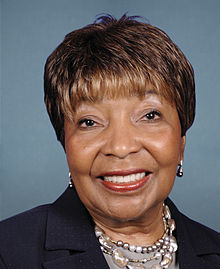 By Congresswoman Eddie Bernice Johnson
By Congresswoman Eddie Bernice Johnson
The unfortunate passing of Supreme Court Justice Antonin Scalia has created a vacancy in the highest court in the land that must filled. It should be filled without delay, because there are important matters before the Court. Article II, Section 2 of the U.S. Constitution is very clear—the President shall nominate, and by and with the advice and consent of the Senate, appoint judges of the Supreme Court. This constitutional process should not be diminished into a political game. The nation’s highest court should not be diminished into a political pawn. More importantly, we must consider the impact or “precedence” our current leaders are setting for our future leaders. Are our current leaders willing to instruct our nation’s future leaders to ignore the Constitution during an election year? I should hope not.
My hope actually goes beyond the single act of confirming a Supreme Court nominee. It is my hope that my colleagues and I put aside our political differences and give the electorate the representation they deserve – a government that takes seriously the shared responsibility of running a fully-functional, effective government.
I am not interested in chiming in to add to the politicization of this process. Instead, I want to focus on the critical reasons for ensuring that our nation’s highest court is fully functional. During this term, the Court will rule on issues, including abortion, unionization and individual voting rights. In a Court that is split 4-4, these issues will remain unresolved. American citizens are disadvantaged when public confidence in our justice system is eroded, because its highest court is powerless. It can no longer protect individual civil rights, protect consumers, or decide critical issues related to police brutality and employment discrimination.
Upon taking office, we all take an oath of office: to support and defend the Constitution. That affirmation is bigger than any party or a single election cycle. The Constitution is clear that the President shall nominate, and with the advice and consent of the Senate, shall appoint Supreme Court justices. There is no law, written or unwritten, that these constitutional obligation become discretionary during an election year. If the Senate fails to act in 2016, the Supreme Court will go two terms and well over a year, with a vacancy. By contrast, since 1975, the average number of days from nomination to final Senate vote is approximately 67 days.
There are recent examples of the President and Senate being from opposite parties, but still being able to come to a consensus to fulfill this vitally important constitutional duty. In 1988, a Democrat-controlled Senate confirmed President Ronald Reagan’s nominee Justice Kennedy. We must call on the Senate to look to the examples of these past leaders to lay a blueprint on what can be accomplished today.
Our democracy has, from its founding, served as the beacon of justice for countries across the globe. It is something that I have always been proud of, and I hope that it is a legacy that we will leave for our children and our children’s children. It’s time that we recognize and confront the dysfunction that plague our political system and make a strategic decision to do the jobs we were sent to Washington to do. The American people deserve and demand no less.








